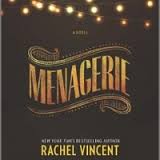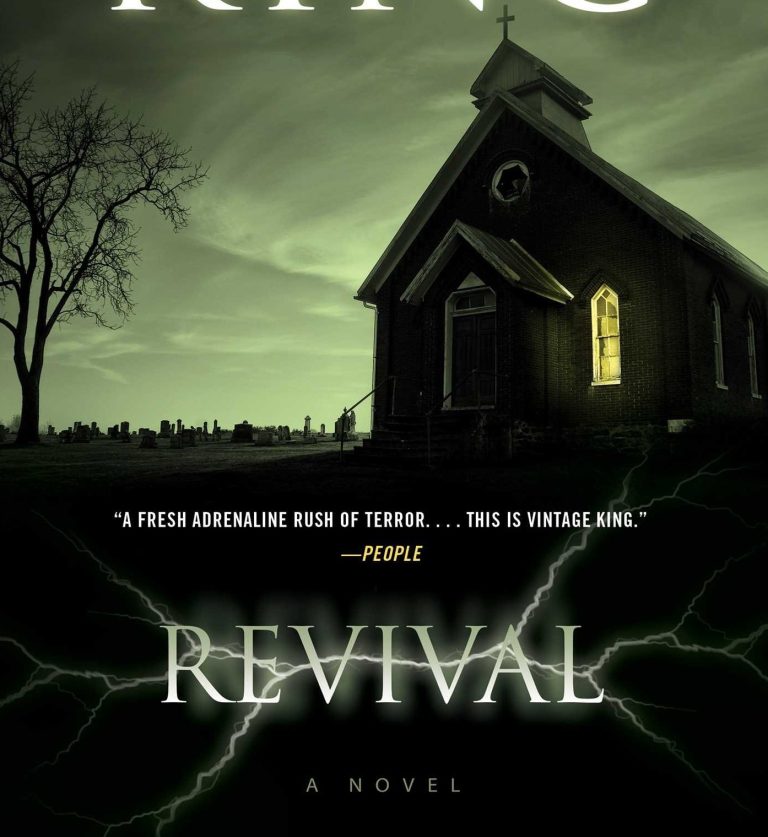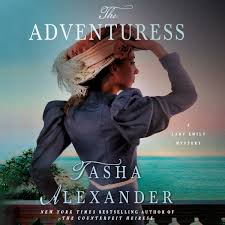The Crucial Question You Must Ask in Your Opening Scene
I talked a bit about theme and plot goals in previous weeks’ posts, so once you have all those points in mind, think what scene would best set up your premise, plot arc, character arc, theme, and mood.
You may have to write a bunch of different first chapters, as I sometimes do. Sometimes it’s not until you near the end of writing your book do you get the right idea for the opening scene. You might be like John Irving, who starts every novel with the last line of his book and works backwards (yes, he does!).
But he’s on to something there—do you see? He knows exactly where he wants his readers to end up—plot-wise and theme-wise. He already knows the end of the story and the take-home feeling he wants to evoke, so he sets about figuring how to lead that back to the start. Maybe that technique will work for you.
I’ll continue in more detail later on about first chapters and all the other structural elements that need to be set up. But for now, think about the heart of your story and the heart of your character. Once you find a way to put her heart right out there from line one, in a scene that throws her at odds with her world and shows how she reacts, you are on your way.
The True Definition of a Scene
One of the main points discussed in previous posts involved picking just the right starting place to begin your book. This means the story starts in present action, in the middle of something happening, with your POV character right in the situation and revealing her (or his) fears, dreams, needs, or goals and the obstacle that is in the way and presenting a problem.
I like the way Jordan Rosenfeld in the book Make a Scene defines what a scene is: “Scenes are capsules in which compelling characters undertake significant actions in a vivid and memorable way that allows the events to feel as though they are happening in real time.” I talked before about eliminating back story and starting right in with your protagonist and hinting at her visible goal.
Mind Your MDQs
You’ve now learned why the visible “goal” of your protagonist needs to be revealed in some measure in the first few pages, and what we’ll explore today is the need to establish both the plot question and the spiritual question your book is raising. For the plot question is tied up in the visible goal (they are pretty much the same thing), but the spiritual question is a little different but just as crucial, if not more.
You may not have a deeply themed book, but there must be some reason you are writing this story. We talked about this in an earlier post. What is your story about? If you were asked, “Why did you write this book?” (and spend months, maybe years of your life doing so!) how would you answer?
Hopefully, there is a specific thing you want to say to your readers. It doesn’t have to be a “message” or sermon on life, but every story deals with themes on one level or another, and your views as a writer will come through the story, sometimes whether you intend it or not. Better to begin a book with intention—intending to say something and leave your readers with that “take-home” thought when they read the last line and close the book.
This ties in with your MDQ or major dramatic query (or question). I think the most important, mind-blowing material I learned in recent years that helped me in my writing craft was to learn about the MDQ. And I hope after you read this you will feel similarly. Now, with every novel I write, I begin with this. And don’t worry, you can learn about MDQ PDQ (pretty darn quickly).
Yes or No?
The MDQ or major dramatic query is a yes-or-no question you ask at the start of the book. Very simply, it’s a question that MUST be addressed in the first scene, as it sets the stage for the entire novel. It is also called (by Michael Hague) the “visible goal” or plot goal (which you have now learned about if you’ve been keenly following these posts). Your question may be “Will Mary save her brother before he kills himself?” or “Will Frodo destroy the ring and save Middle Earth before Sauron gets his hands on it?” or “Will Dorothy make it back to Kansas or be stuck with those annoying munchkins for the rest of her life?”
You get the idea. The are only a few variations of this plot question, and they involve the character either getting something or somewhere, saving someone, finding something, or escaping something (this will sound familiar if you read the last two posts).
Now, the answer that you reveal at the end of the book can be either yes or no. Maybe Dorothy will, after all, end up living in munchkin land, but she might enjoy it, and find her true path to happiness there. You’re the writer; it’s your choice. You do have to answer this question, by the way, and that’s why you set it up in the first scene. It’s the key to your story. But . . . it’s not the heart.
The Heart Is in the Spiritual Query
But now we turn to another MDQ, and that’s the spiritual query or question. It’s a little harder to pinpoint, but it reveals the heart of your character and the heart of your story. Without it, you might have an exciting plot, but will anyone really care about the story, or even read it to the end? Without a spiritual question for your protagonist, the answer may be no.
When I say “spiritual” question, I am not talking about faith or faith-based stories. Every good story has one. A question that involves the character’s spirit—her heart—is what we’re concerned with.
Think about Frodo. His MDQ spiritual question might be: “Will Frodo be able to live with himself and his world by the end of the book if he makes the choice to undertake his journey?” or “Will Frodo find peace and inner joy through his journey to destroy the ring, even if it kills him?” Dorothy’s spiritual question might be: “Will Dorothy find her place in the world, feel she fits in, feel at home somewhere?” Think about how these spiritual MDQs are raised at the start of the stories, alongside the plot MDQs.
Now, what it crucial to realize is that BOTH questions get answered AT THE SAME TIME AND IN THE SAME SCENE at the end of the book! This is amazing, and when done well, makes your book a winner. Dorothy gets home (plot MDQ) but at the same time she realizes she’s always been home; that here, with Aunty Em, is where her heart truly lives (spiritual MDQ).
So before you even start writing (or if you are partway through your novel), write down your two MDQs—the plot and spiritual questions you need to raise in the first scene that will be answered in one of the last scenes in your book. This is what should shape and give impetus to your entire novel—-these questions. Your plot arc and character arcs will all begin and end based on these questions. They seem simple, but the reader needs to know what they are.
This doesn’t mean you state them blatantly (although in my novel Conundrum, I decided to actually have my main character, Lisa, in first person, ask the MDQ in her head—literally and exactly word for word. That worked for my book, and it sure left no confusion on the reader’s part as to what the novel was about and what Lisa’s plot and spiritual questions were).
I’ve given you a lot of important, big things to think about, and I hope you will see how mind-blowing the MDQ topic is!
This week, ponder awhile on this to get the hang of setting up your novel at the start with these important elements. It will make writing your book that much easier. The MDQs become a beacon of light that guides your protagonist on her long, dark journey to the end of the story. Be sure to share a comment, tell us what your plot MDQ is, and what you’ve learned about your character’s spiritual MDQ.












Your article spoke directly to one of many needs as a first time writer. I’m still ‘putting up the frame’ of my book and am thoroughly enjoying the process! My plot MDQ: Five years after her husbands tragic death, Emmy Miller successfully owns her own catering business. She operates the business out of her home, with the help of her Mother, while raising her five year old daughter. Will she ever let go of the love she and her husband shared allowing herself to be free to love another?
Emmy’s spiritual MDQ: She allows love to live again, through the help of her Mother and daughter, realizingshe is holding on to a memory that contains love, but can’t provide it anymore.
I’ve been reading through your series and you have enlightened me. I’ve been struggling with my opening scenes (the ones right before the inciting incident unfolds). I’ve written four opening chapters to date. Pinpointing my two MDQ’s just made the way clearer. On top of that your twelve key pillars of novel construction Q&A sheet helped me expand on my kicker.
So glad to hear that. You can always hire me to critique/look over your pillar worksheets and your opening chapters!
Excellent article–illuminating. I already love this site, and I’m so glad I found it.
Oh, lots to consider here. I’ve never thought about such things in such an analytical way, so I guess doing so will make my plots that much clearer.
The two components of the MDQ are there in the opening of my WIP, but one is definitely not as clear as the other.
Plot: will Cassie survive the magician’s experiment?
Spiritual: will Cassie find enough understanding of what it means to live as a human being to do so successfully?
Hm, I feel a re-write of that first scene coming on….
The Crucial Question You Must Ask in Your Opening Scene:
I’ve always picked up a paperback and flipped to mid-way through to get a sense of a story and the quality of writing. But with the advent of the e-book and 15% sampling, I’m no longer able to do that. So you offer excellent advice: possibly the best piece of advice I have seen for indie writers amongst all that is written on the topic. I was mulling over the re-write of the beginning of a self-published e-novel and will now likely proceed. I’ve been told the story is strong, and the second half of it is a great read, but as it was my first attempt at anything other than an email, my guess is the opener isn’t quite as professional polished or as strong as it needs to be to get past the 15% sample mindset.
Do you email your blog directly to followers? If so, how do I get on your list?
Kind regards
Jim Graham
To subscribe to e-mail, just put in your e-mail address on the honme page in the box. You’ll get each post as a one-page e-mail. It is very easy and readable. Thanks!
I’m thrilled that I’ve nailed down my Visible Goal and my Spiritual Goal. What I’m still deciding on is the opening scene. I definitely want to start the action and clearly reflect these two goals, but I’m realizing that it needs to further into the story. Whether I can use by original first scene (later as flashback or back story, NOT in first chapter of course) or have to ‘kill my darling’ remains to be seen.
Thank you for this vivid and specific information. It inspires me to get going on the first scene of my next book.
I’ve never heard it put in exactly that way before, but without a spiritual or moral challenge, where is the conflict? Why not just kill everyone or everything that gets in our way? But of course real life isn’t like that, and it would be a kind of cheating in the context of a novel. I’ve written opening scenes that start with action, and openers that start off with a lot of self-examination by a character. People expect action, and to be entertained. Years ago I read a book that began with a kind of resume or curriculum vitae of the major character. It bugged me so much, that I had to write my own books. Yet that other author is famous and successful. This discussion sort of convinces me that teaching ‘the right way to write’ is probably not for me!
Great advice. The parallel development of a real-world and spiritual conflict seems like a good way to add depth to a story.
Since you presented such an analytical structure to designing the opening scene, I’d like to add to the complexity.
As a fiction coach, I have stressed the use of several outlines to help create the character development, pacing in conflict and worldbuilding. Using these outlines could assist in finding the blend needed for that first scene.
Once you have answered the question of the plot and spiritual MDQ, imagine taking a look at several outlines. You have a series of behavioral traits in the character that have been occurring since the person’s childhood. You have a major conflict facing the person, and that conflict will have a series of mini conflicts that arise from the societal, economic, political, and cultural forces in that world.
Somewhere in your design scheme, you might imagine drawing a line from those basics up to a specific scene, like the opening scene. When you trace the lines of those factors up to the general plot and spiritual MDQs, you will notice an intersection of lines. That would be how you can blend the elements from the outlines into that first scene.
A comparison of the Frodo character with Ned Stark in RR Martin’s Game of Thrones could illustrate this point.
Frodo emerges in a pastoral setting with an interaction with Gandalf where the reader feels a contrast between the peaceful Shire and some ominous threat. The world is not as it seems in the gentle Shire and the reader becomes caught into a growing sense that Frodo will have to deal with some threat.
On the other hand, Ned Stark appears in the beginning of
Game of Thrones shortly after a prologue where unknown beings have killed a remote group of defenders as a threatening form of Winter takes hold. Stark’s action shows his fear, loyalty and sense of duty as he kills a deserter.
In both cases, the opening scene brings the reader into the fray of a major conflict while uses the background of the character and worldbuilding. Frodo’s curiosity and urge to protect stand out. Stark’s desire to educate his sons about the Night Watch or protectors is mixed with his concept of justice as he awards a group of special wolves to his sons.
So the use of background material can show the path to which way the character starts the story.
What are your thoughts about this?
Tom Pope
Fiction Coach/Writing Teacher
Those are good thoughts and methods. There are so many ways to build a world and story, but I tend to start with character. I’ll be going in depth about how I teach the way to flesh out characters by going into the pyschology of how they are driven and why (in future posts) and I’m thinking that next year will be mostly dedicated to the “Plot” and ways to make it compelling and believable. Amazingly enough, I’ve already written all the posts for this year and just scratched the surface of plot, but I will get to it! A note here, though, is I agree it’s so important to have your characters IN their world–affected by it and acting in it. So many beginning writers have a huge disconnect and sadly that makes their story shallow and uninspiring. I’ll be talking quite a bit about engaging the characters in their setting, time period, and other elements such as you mention. Thanks for sharing!
I’m so grateful for all the wisdom you share. It has helped me a great deal focusing the important issues of my novel, and I wish I had found you before I started writing the first (published) one. I’ll be back with more (my husband just came in with a bouquet of flowers -happy Valentine’s Day!) – just wanted to quickly say this.
Jessica Lutz
Thanks so much! I hope all the instruction this year will help you, and of course, you can always hire me to critique your manuscript when you’re ready to point out what needs work.
The idea of the MDQ versus the spiritual query (SQ) is really interesting. I quite like that distinction, particularly for its relevance to the dual goals of outer story arc and inner character arc. In that light, MDQ and SQ feel like really useful tools for the story-crafter.
That said, I don’t think you really made the case that BOTH questions need to be raised in the opening scene. Indeed, the MDQs of LotR and Wizard of Oz are NOT raised in the opening scenes.
For Lord of the Rings, the MDQ of destroying the ring before Sauron gets his hands on it is not revealed until half-way through the first book of the trilogy, when the assembled VIPs of Middle Earth decide they’d better destroy it and Frodo volunteers to do the grunt work. That’s a full one-sixth of the way through the series!
For The Wizard of Oz, similarly, we have some establishing scenes of Dorothy’s monochrome Kansas life and the inciting incident of the tornado before the possibility of the story’s MDQ can even theoretically be raised. Oz’s MDQ is fundamentally a piece of _fantasy_ (mysterious travel between worlds), which cannot even enter the reader/viewer’s minds until the story has departed from the normal world of Kansas. That is, until the story reveals to us that it is fantasy, rather than mainstream, we can’t even ask that MDQ.
However–and it’s a big ‘however’–I do note that in both cases the opening scenes do touch on the protagonist’s SQs. For Frodo, it’s about coming to terms with his life as his own life in absence of Uncle Bilbo (who announces he’s leaving the Shire). And for Dorothy, as you say, it’s about achieving a sense of belonging–of home–which is a goal on one of the higher levels of Maslow’s hierarchy of needs.
As you say, what readers really need is an EMOTIONAL reason to connect with the story. A reason to CARE what the outcome of the MDQ is. The best way to get that, IMHO, is to engage the reader emotionally by means of the protagonist’s SQ. There will be plenty of time later for showing how the quest for the SQ is inextricably linked to the MDQ, but the MDQ itself need not play any part in the opening scene.
If it happens to fit, that’s cool. But if not, don’t sweat it. Plenty of stories have done just fine without raising the MDQ straight off the bat. My advice is to focus first on solidly establishing the SQ. Do that in your opening scene, and readers will gladly stick with you long enough to learn what the MDQ might happen to be.
Susanne Lakin,
In your quest to help people set characters within the worldbuilding, I wonder if you break apart the key factors that put pressures on those characters.
I use a word as a device to help writers think about this approach. The word SPICE could stand for Social, Political, Ideological, Cultural and Economic.
When we view Ned Stark, we could see all those elements churning in his mind. His sons don’t share his full attention and we will later see Jon as illegitimate. That’s a social pressure. Yet he tries to be fair, which shows an ideological position about his legal sensitivity. His fear about deserters and closeness to the far North become a political pressure more than if he had lived in the south. His life in a wild climate form an impression that builds into a worship of a different system of gods than in the south and brings into play a cultural pressure. And the harshness of the land implies a harder way of life that affects the economic lifestyle.
So in one scene, we have a chance to view SPICE affecting the character as a way to develop the worldbuilding that is needed.
Let me know what you think,
Tom
Wow– I’ve never heard this described in this way before. Thank you for a clear explanation as this will help me with the opening chapter I have been struggling with!
This, to me, is the key to the whole heart of a story. When I compile the posts into a book at the end of the year 9will be for sale as an eBook and print book), i will be adding much more on the MDQ. Be sure to read the post that follows this one as it talks about the twist in the plot that relates to the MDQ.
I’ve been reading your blog for a while and appreciate your focus on theme. I find it so important in my own writing that I won’t begin writing if I can’t pick up on it. I’m one of those writers who sees the ending first. In some ways, having the answer before the questions can be just as daunting because there are infinite ways to arrive at the answer. I use Dramatica to plot out my stories, and it’s similar to what you’re saying. You additionally have to answer 12 story questions before starting. It’s quite detailed and time consuming, but I don’t mind the work because it allows me to build a story without holes in the plot. Looking forward to your future posts.
Thanks and I hope you will subscribe and follow the weekly posts. The year-long instruction starting Jan 1 and will run till the end of the year, and I will be releasing the book in print and ebook in November: Writing the Heart of Your Story, with much more added to it. I haven’t heard of Dramatica but it sounds neat!
Thank you for this great article. It’s exactly what I needed in my writing. MDQ question… got it.
I’ve never heard this before – but it makes perfect sense and as I am just beginning a new novel – I am going to make big time use of your advice. Thank you.
Billie
You’re welcome!If you learn anything from my year-long course this year, learn this. i think it’s the most important key to a great novel. When I release the compiled book in November (and I hope you will buy it!), I’m going to go into much greater length on this topic.
Terrific article, CS.
Okay. Here goes for the point of the exercise:
Visible Goal/MDQ: Will Durant live up to the expectations of his father when two goals are diametrically opposed?
Spiritual MDQ: What cost is Durant willing to pay to fulfill his father’s dreams? Will he sacrifice his own happiness?
I love this series! I can’t wait until the book comes out.
Penny, great MDQs!The first is a bit vague and would work better to name specifically what is expected of Durant and whether or not he will follow through or not. Are the two goals his father’s (both) or do you mean will Durant choose to live his father’s dream or his own?
Great article. I have subscribed to receive these gems from you. You do this so well that I just might hire you next time I need a critique. Will re-tweet this!
Barbara Anne Waite- Author “Elsie-Adventures of an Arizona Schoolteacher 1913-1916”
I’m considering rewriting a novel I put out some years ago which went nowhere, and I think the opening scene is one of the weaknesses: the situation looks cliched (it isn’t, but that only becomes clear with time,) and neither of the protagonists look like people you’d want to know. One solution that has occured to me: open with a very lively scene from late on, let it lead to a recap of how they got there, and have all the previous events as flashback, so we see that opening situation and characters in the light of what we already know about where they’re going. Opinions?
Using a frame structure (which is what you’re talking about–pulling a later scene to preview at the beginning) is very common in books and movies. I do this in two of my novels (Intended for Harm and The Sands of Ethryn). But you don’t want to use any old scene just because it’s “lively.” Usually you are foreshadowing with THE key scene or moment in the climax or right before. In Inception, the opening scene is the moment when the protagonist finally reaches the man he needs to rescue in order to end his nightmare.
I don’t know what you mean by having “all the previous scenes as flashback.” With a frame story, the prologue is giving a peek at what’s to come, then the novel starts in chapter 1 in the present action and moving forward. But it’s not always best to use this structure. It may be better to think about the best, most dynamic, tense, and engaging scene to put your protagonist in to showcase his character and conflict and set up the premise right before the inciting incident occurs. That’s usually the best way to go unless you have some very key info you want to hint at in the opening (see my review of first pages with The Girl on the Train).
One of the difficult things about the opening is the unlikelihood of the couple’s relationship ever going anywhere good. I also used two-voice first person, which seemed like a good idea at the time but didn’t let me explore their feelings as deeply as I thought; it also precluded foreshadowing, because they’re telling the story as it goes along rather than with hindsight.
The scene I’m thinking of as the new opening is one of the best showcasing their new-found love, but will leave the reader wondering how on Earth they could have got there. I’d recast it in third person (taking the chance to describe and introduce them better than I could in first person,) and carry that on to a meeting with the hero’s mentor, where he mentions how it all began. At that point I’d switch to the original double first person story, as if they’re recounting it to him from the start up to where they are now: then go back to third person for the HEA wrap up.
Great article. It can walk the writer through the path of structure. I have both goals –still clear in my mind, even though I lost all my edited files (using Scrivener), something happens to the story and the writer as well, once she nails down the quest of hte plot and the quest of the character in the plot but even more so when the writer find the spiritual quest of the main character. It is important and authors should not skip this step.
Thank you for writing this article.
I love this article- it helped me achieve the real goal of my characters. I am a character-driven author and focus on the relationships and the evolution of my main characters, so this helped me sharpen the plot (along with the story spine article)
My MC’s Plot MDQ is that he needs to save a politician from being assassinated by a company of assassins that have a personal plan to rise and take over the other companies. Basically, they want power. my spiritual MDQ is if he can stand carrying on the family line. He does not like the idea of killing,not even for pay, but it’s a family tradition. He also is stressed because the Scarlet Wolves (his assassin company) is counting on him.
My rival/love interests plot MDQ is saving the Scarlet Wolves. His spiritual MDQ is if he can find the people who truly care for him. He is an orphan taken in by the leader of the Scarlet Wolves, and is the top of the class, admired by all his peers. He does not feel that admiration, or maybe even fear, is love.